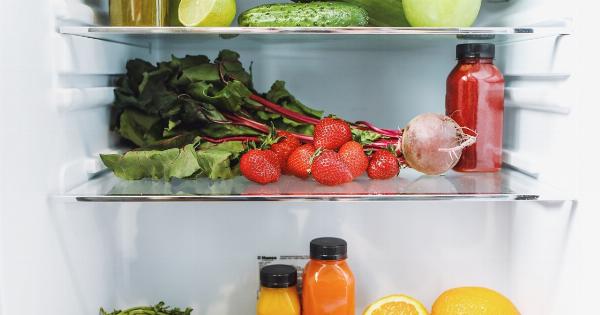Food waste is a major contributor to climate change and a significant threat to the planet, and unfortunately it’s a problem that is getting worse.
According to the Food and Agriculture Organization of the United Nations (FAO), one-third of all food produced in the world is lost or wasted. This equates to approximately 1.3 billion tonnes of food that is thrown away each year, which not only harms the environment but also wastes valuable resources such as water, energy and land.
To combat this problem, we need to start teaching our children about the importance of reducing food waste and taking action to make a difference.
Why Food Waste is a Problem
Food waste has a considerable environmental impact, contributing to climate change and resource depletion.
When food waste ends up in landfills, it decomposes and produces methane, a potent greenhouse gas that is 28 times more damaging to the environment than carbon dioxide. This is significant because landfills are the third-largest source of methane emissions worldwide. In addition to the environmental impact, food waste also represents a waste of resources such as water, energy and land.
The Cost of Food Waste
Food waste is not only a threat to the environment, but it is also a waste of money. In the United States alone, it’s estimated that households waste $218 billion worth of food each year.
This is equivalent to approximately 1,249 calories per person per day, which is enough to feed about 80% of the entire population of India. When we consider the fact that there are millions of people around the world who are food insecure, wasting food seems even more unjustifiable.
Teaching Children the Importance of Reducing Food Waste
One of the most effective ways to reduce food waste is by teaching children about the importance of reducing waste and how they can take action in their daily lives.
By educating children about this issue, we can help to create a generation of conscious consumers who are committed to making a positive impact on the environment. Here are some ways to teach children about reducing food waste:.
1. Start a Compost Bin
Starting a compost bin is a great way to teach children about the importance of reducing food waste. Composting helps to reduce the amount of organic waste that ends up in landfills and also provides valuable nutrients for plants.
Children can help to create a compost bin by collecting vegetable and fruit scraps, coffee grounds and eggshells, and turning them into compost for the garden. By seeing the positive impact of composting, children can learn about reducing food waste in a fun and engaging way.
2. Plan Meals and Shop Smart
Teaching children about meal planning and smart shopping is another effective way to reduce food waste.
By involving children in the meal planning process, they can learn the value of using up ingredients that are close to their expiration date and avoiding overbuying. For example, children can help to plan meals around ingredients that need to be used up, such as vegetables that are starting to wilt or leftover chicken from the previous day’s meal.
This helps to reduce food waste while also saving money on groceries.
3. Use Leftovers creatively
Using leftovers creatively is another way to teach children about reducing food waste. Children can experiment with different ways of using up leftover food, such as making soups, stews, or casseroles.
They can also learn the value of freezing food to use at a later time, which allows them to reduce waste while also having a supply of meals ready to eat. By getting creative with food, children can learn to appreciate the value of the food they have and reduce waste at the same time.
4. Donate Extra Food
Donating extra food to a local food bank or charity is another effective way to reduce waste and teach children about giving back to their community. Children can help to collect extra food from their homes or schools and donate it to those in need.
By seeing the positive impact of donating food, children can learn about the importance of reducing waste and giving back to others.
5. Make it Fun
Finally, making reducing food waste fun can be a great way to engage children and help them to learn about the importance of this issue.
Children can participate in fun activities such as a “zero waste” challenge, where they try to see how little waste they can produce in a day or week. They can also learn about composting through fun games or activities such as “compost bingo” or “worm races”.
By making reducing food waste fun, children can learn about the importance of this issue in a way that is engaging and enjoyable.
Conclusion
Reducing food waste is a critical issue that needs to be addressed if we are going to protect the planet and preserve our resources for future generations.
Teaching children about the importance of reducing food waste is a great way to create a generation of conscious consumers who are committed to making a positive impact on the environment. By encouraging children to start a compost bin, plan meals and shop smart, use leftovers creatively, donate extra food, and have fun while doing it, we can help to create a more sustainable future for all.





























